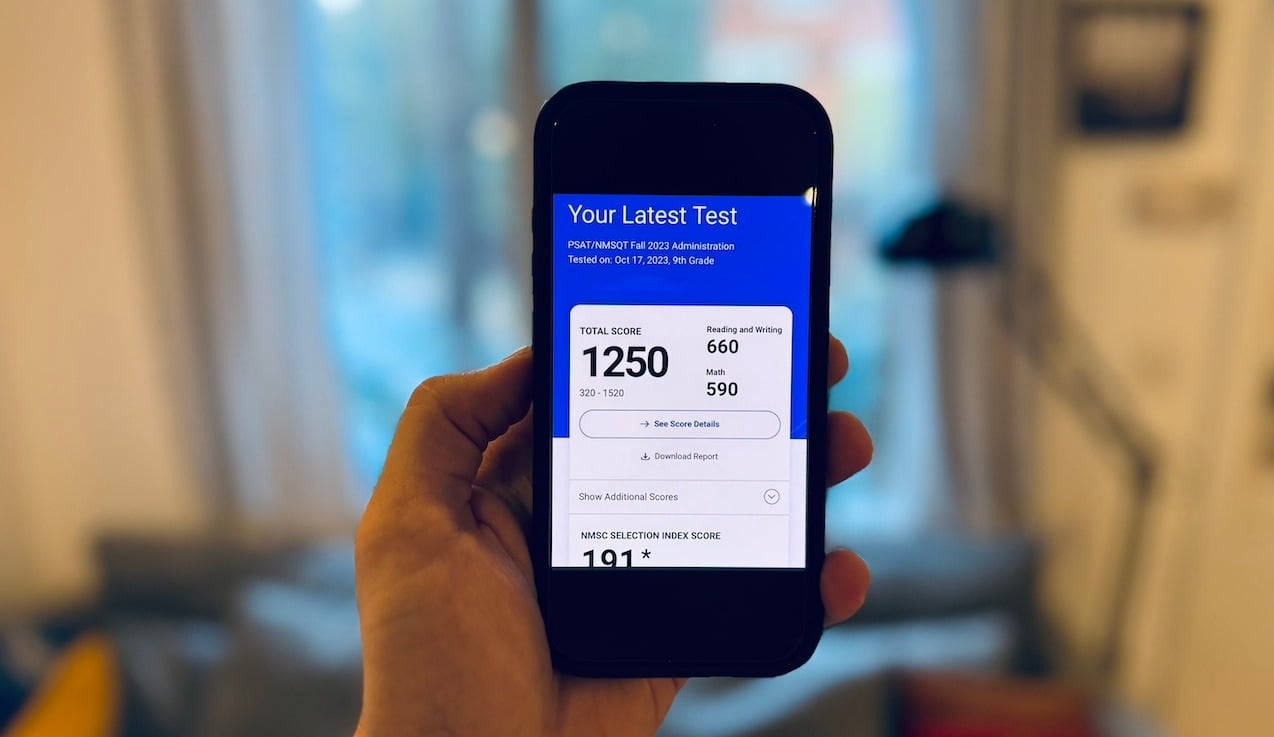My oldest called, texted, and FaceTimed me non-stop on Tuesday morning until I finally was able to pick up. She got her PSAT results back and wanted to chat about them, what they meant, how her scores looked, and when she was going to take the official SAT or ACT. Can you tell she's the daughter of America's College Counselor?
But I wasn't my perky and engaged self. Part of it had to do with the fact that I was reeling from finding out that my younger daughter had just tested positive for COVID. (Oy, don't even get me started on how scary this is.) The other part of it had to do with my knowledge of how relatively meaningless the PSAT scores are, especially for a sophomore in high school, like my oldest.
Maybe it's my cynicism these last 48 hours, but I'm going to pull out my Jersey straight talk. The PSAT score matters very little to the vast majority of college-bound students.
Here's why:
- PSAT scores have never been a part of the admissions process. Well, not until the pandemic hit. But hear me out!
- Truth be told, there are a handful of colleges in the U.S. that now indicate that if a student hasn't been able to take an SAT or ACT due to COVID, they can submit their PSAT score. University of Michigan has offered this as an option for the last two admissions cycles. Some of the service academies have offered this too. It's hard to find many more, though.
- But who would report their PSAT for college admissions? The PSAT score is usually a fraction of what a student is capable of scoring on the SAT or ACT.
- In fact, the scale only goes up to 1520 compared to 1600 on the SAT. So the PSAT score never looks that great to a student or an admissions officer.
- And, admissions officers don't pay attention to score percentages like my oldest did when we chatted the other day. They care about the actual scores on each section. The closer to the highest score you can get on the section is ideal. That would be a 760 on each section of the PSAT.
- While a high index score from the junior year PSAT can position a student to become a National Merit Semifinalist or Finalist, only about 7,500 students worldwide will get the National Merit Scholarship.
- And, even if a student is on track to get the National Merit Scholarship, not all colleges sponsor it. Any college that uses only need-based financial aid (instead of merit scholarships) is not a sponsor. That means the Ivy League institutions and a number of other highly selective colleges are not sponsors of the scholarship.
So what do you do with the PSAT score and why take it?
Use it to give yourself a sense of whether the SAT could be the right test to take in the future while getting some practice taking a full-length standardized test. But the reality is that I'd rather you take a full length SAT and ACT, FOR PRACTICE ON YOUR OWN under normal timing requirements (or with timing to reflect a College Board or ACT accommodation that you would get if it were a real test) to know for sure which official test to take in the future.
And the truth is that if you are a naturally strong test-taker, the PSAT may help you make that first "cut" and become a National Merit Semifinalist. But it will be an official SAT or ACT score and a full National Merit application that will determine whether you actually get the scholarship.
READ MORE: What Admissions Officers Think of Students Who Take a Study Hall
So don't get too upset or too caught up with your PSAT score. It's a little like me having a negative antigen or PCR test at the moment. It doesn't guarantee anything to come. One test, whether it's a PSAT, SAT, ACT, or PCR, won't define me or you.











